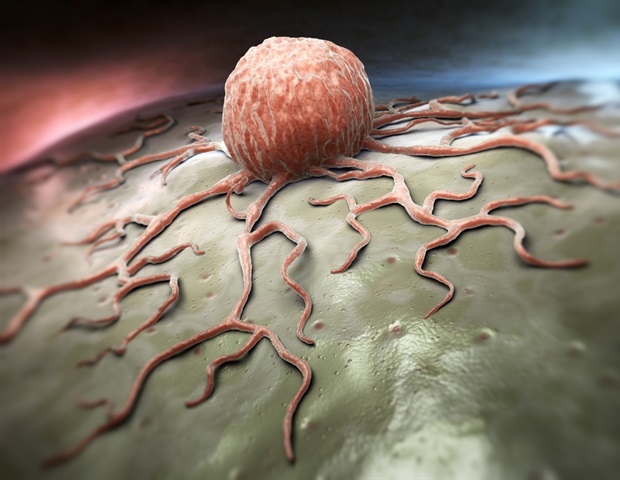Vous n'êtes pas connecté
- English
- Français
- عربي
- Español
- Deutsch
- Português
- русский язык
- Català
- Italiano
- Nederlands, Vlaams
- Norsk
- فارسی
- বাংলা
- اردو
- Azərbaycan dili
- Bahasa Indonesia
- Հայերեն
- Ελληνικά
- Bosanski jezik
- українська мова
- Íslenska
- Türkmen, Түркмен
- Türkçe
- Shqip
- Eesti keel
- magyar
- Қазақ тілі
- Kalaallisut ; kalaallit oqaasii
- Lietuvių kalba
- Latviešu valoda
- македонски јазик
- Монгол
- Bahasa Melayu ; بهاس ملايو
- ဗမာစာ
- Slovenščina
- тоҷикӣ ; toğikī ; تاجیکی
- ไทย
- O'zbek ; Ўзбек ; أۇزبېك
- Tiếng Việt
- ភាសាខ្មែរ
- རྫོང་ཁ
- Soomaaliga ; af Soomaali
 Maroc - NEWS.MEDICAL.NET - A la Une - 17/Jan 07:05
Maroc - NEWS.MEDICAL.NET - A la Une - 17/Jan 07:05
New approach shows promise in fighting multiple cancers
The tissue adjacent to a tumor behaves differently than areas farther away: The tumor's cancerous cells influence their surroundings, blocking the body's immune defenses and creating a sort of haven in which the tumor can grow. Treatments that target some of these pro-tumor actions are effective in a number of cancers, but only for some patients; in others, these treatments have little effect.
Articles similaires
Les derniers communiqués
-
Aucun élément
